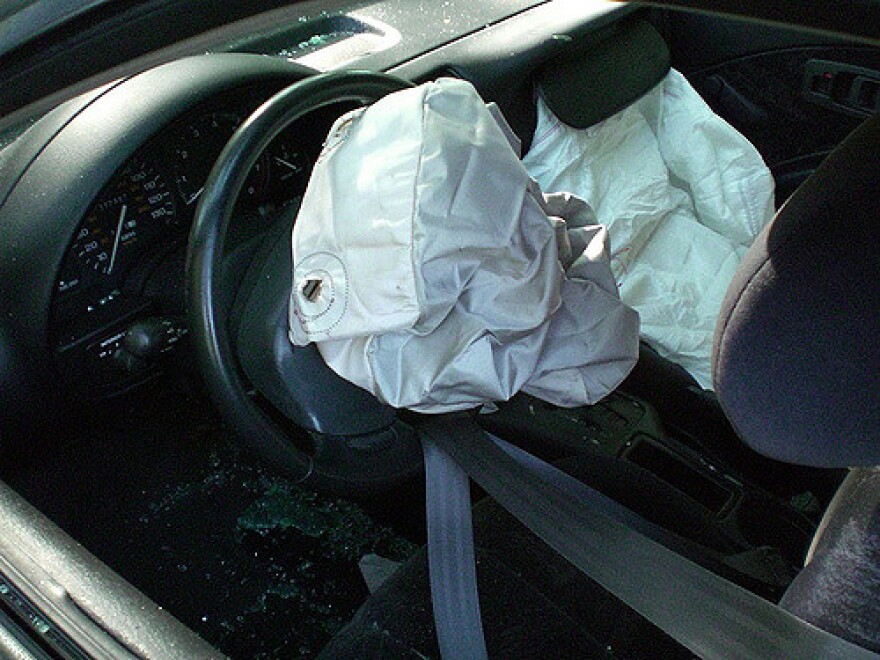The company responsible for selling defective airbags has pleaded guilty to a federal fraud charge.
At a press conference in Detroit, Sandra Moser with the U.S. Department of Justice said Takata willfully manipulated test data to make it look as if its airbags were safe, and sold them to automakers intentionally.
“Takata was supposed to be selling products that save lives,” Moser said. “Not pushing into the marketplace products increase the risk of harm to consumers."
Takta's airbags can explode due to the propellant used to make the airbag expand during a collision. The propellant is a chemical compound of ammonium nitrate. When exposed to extreme heat or moisture, the propellant can expand too powerfully, in some cases causing the airbag's metal casing to rupture, and sending metal shrapnel flying as the airbag expands.
Defective Takata airbags are responsible for 16 deaths worldwide and spurred the largest recall in automotive history.
According to the plea agreement, Takata has admitted that company executives knew the airbags could be defective as early as the year 2000, and systematically falsified testing data related to the airbags for years.
“In addition, Takata took no disciplinary actions against those involved in the falsification of test data until 2015,” states the plea agreement. “Despite the fact that senior executives had been made are of the fraudulent conduct years earlier.”
A majority of the $1 billion Takata now has to pay will go toward costly vehicle recalls. However, $125 million restitution fund for victims of Takata airbags that have not yet settled with the company will be created, as well as a $25 million fine.
Three former Takata executives were also charged independently. Shinichi Tanaka, Hideo Nakajima, and Tsuneo Chikaraishi are accused of directing the manipulation of test data to falsely indicate airbags manufactured by Takata met the safety requirements stipulated by automakers.
All three men are currently living in Japan, according to McQuade. She says arranging for extradition of the men to the United States will require negotiation, since Japan has discretion. But she is optimistic that the Japanese government may be willing to help.
The indictment accuses the executives of knowingly manipulating test data related to the airbags to hide any concerns related to the potential for some airbags to explode and send metal shrapnel flying when airbags deployed.





